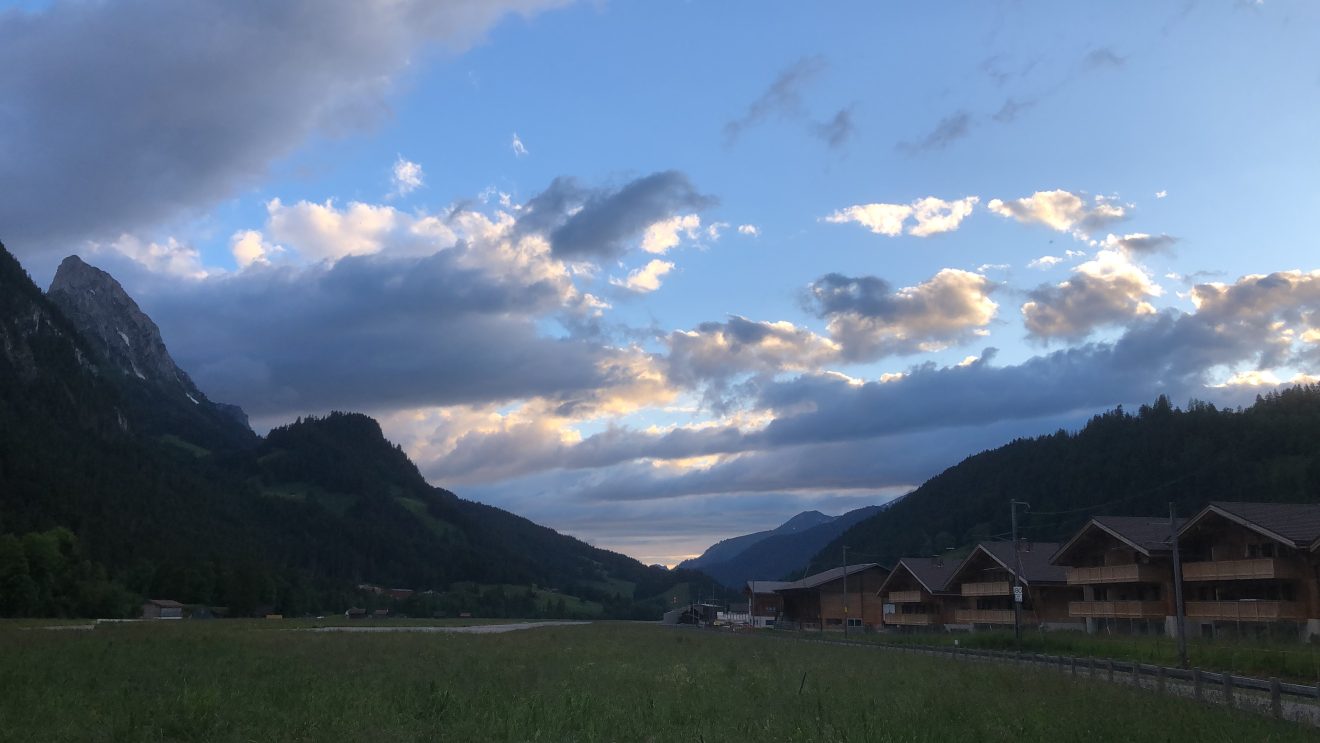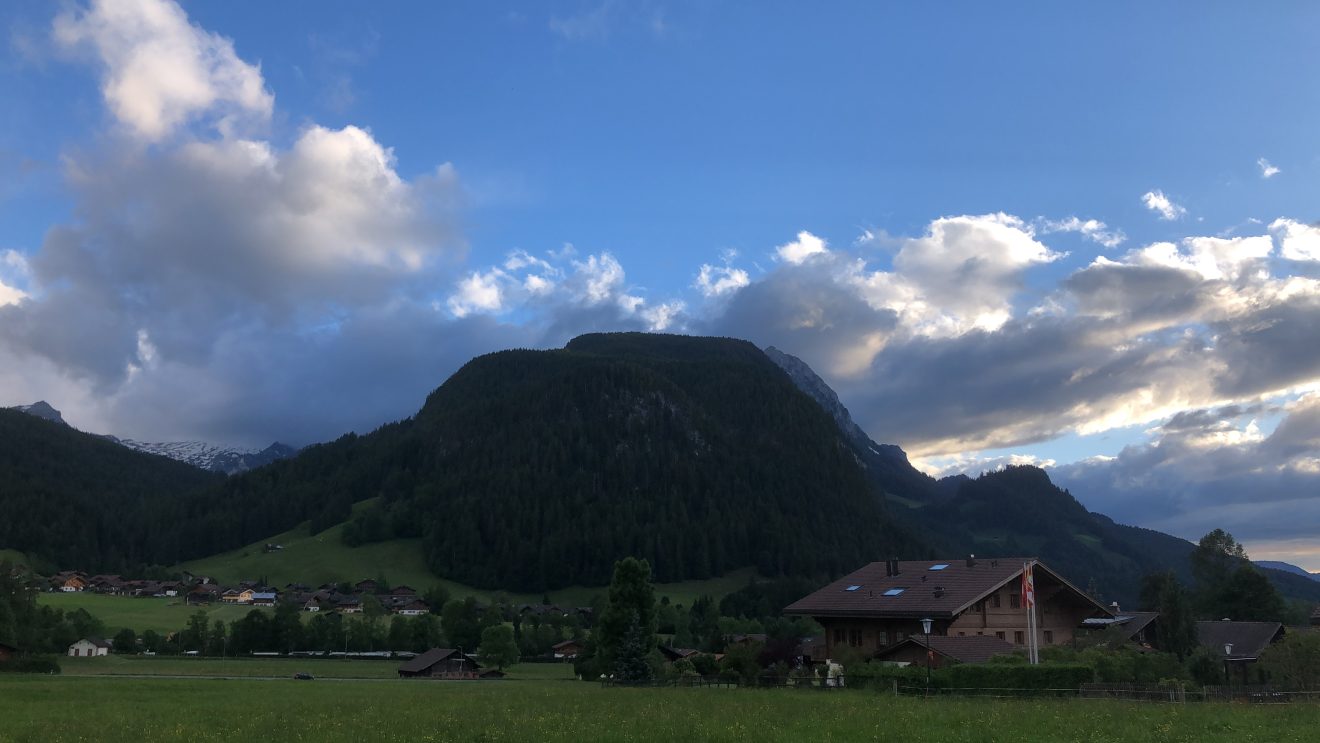The Book of Yourself Newsletter
Issue 30: May 2024
|

|
Many years ago a friend and fellow Brockwood alumnus gave me a copy of the fresh-out-of-the-press first edition of The Ending of Time (1985). As I recall, I read through the whole book while on a long-distance trip on a Greyhound bus across the American Southwest, perhaps a fitting backdrop, though not the most comfortable transport, for the deep inward journey into the vastness of Being that K and Bohm were venturing into. By then I was rather familiar with the teachings, but this work was different. It seemed to reveal new metaphysical depths that, as far as I knew, K had not broached previously in his writings or in conversation with anyone. It was my impression that he avoided treating of such esoteric subjects as a matter of principle. His whole approach seemed to consist in raising the awareness of our total disorder so that, dissolving it in the light of understanding, we would discover for ourselves what lay beyond the ordinary level of consciousness. The implication was that it would be pointless to describe any such deeper dimension unless one had the eyes to see it, otherwise it would become a mere description and the description, as he never tired of saying, is never the described. Such descriptions would be speculative ideations of thought, whereas truth is a matter of seeing.
|
In these dialogues with Bohm, however, K was determined to elucidate a recent discovery of his, namely his sense that the uninvited movement of meditation that had accompanied him all his life had finally reached the source of all energy, the absolute, that beyond which there is nothing. This perception had first taken place at the end of 1979 in Rishi Valley and was subsequently confirmed during his stay in Ojai at the beginning of the following year. That was the origin of this series of dialogues with Bohm, namely, the attempt to bring out the nature and implications of such a journey to the Source, or what they ended up calling the Ground. Here is the account of this transcendental encounter dictated by K to Mary Zimbalist back in Ojai and as printed on the last two pages of the second volume of Mary Lutyens’ biography:
|
|
K went from Brockwood to India on November 1, 1979 [actually October 31]. He went after a few days in Madras straight to Rishi Valley. For a long time he has been awakening in the middle of the night with that peculiar meditation which has been pursuing him for very many years. This has been a normal thing in his life. It is not a conscious, deliberate pursuit of meditation or an unconscious desire to achieve something. It is very clearly uninvited and unsought. He has been adroitly watchful of thought making a memory of these meditations. And so each meditation has a quality of something new and fresh in it. There is a sense of accumulating drive, unsought and uninvited. Sometimes it is so intense that there is pain in the head, sometimes a sense of vast emptiness with fathomless energy. Sometimes he wakes up with laughter and measureless joy. These peculiar meditations, which naturally were unpremeditated, grew with intensity. Only on the days he travelled or arrived late of an evening would they stop; or when he had to wake early and travel.
|
|
With the arrival in Rishi Valley in the middle of November 1979, the momentum increased and one night in the strange stillness of that part of the world, with the silence undisturbed by the hoot of owls, he woke up to find something totally different and new. The movement had reached the source of all energy. This must in no way be confused with, or even thought of, as God or the highest principle, the Brahman, which are the projections of the human mind out of fear and longing, the unyielding desire for total security. It is none of those things. Desire cannot possibly reach it; words cannot fathom it nor can the string of thought wind itself around it. One may ask with what assurance do you state that it is the source of all energy? One can only reply with complete humility that it is so.
|
|
All the time that K was in India until the end of January 1980, every night he would wake up with this sense of the absolute. It is not a state, a thing that is static, fixed, immovable. The whole universe is in it, measureless to man. When he returned to Ojai in February 1980, after the body had somewhat rested, there was the perception that there was nothing beyond this. This is the ultimate, the beginning and the ending and the absolute. There is only a sense of incredible vastness and immense beauty.
|
|
Chapter 21: The Source of All Energy
|
The Years of Fulfilment, pp. 237-238
|
|
This Ground is the creative source of nature, man and the whole universe. Mankind, however, as K put it, took a wrong turn and deviated from this source, from the absolute. What K wanted to discuss with Bohm was the way mankind might be able to come to the same realization. As this source is absolute order, coming in contact with it is therefore essential because it means the end of all our troubles. They proposed that one way to come upon it would be to find out whether we can have absolute order in ourselves while living in this chaotic world and they agreed that we can bring about order in ourselves through careful observation, self-study and having an insight into the nature of disorder, which dispels it. So the way to discover the Ground is to put our own house, ourselves, in absolute order.
|
|

|
For most of us that would be almost miraculous. We seem to be trapped in our own time-bound habitual ways and to lack the energy, courage and vitality to make a clean break. K, however, feels this is no big deal because, albeit with considerable inquiry, any fairly intelligent, civilized human being can put his own house in order, which means no comparison, no sense of ‘me’ and ‘you’, no factor of division and therefore no conflict. What he envisions is not a partial but a complete order in our whole being. So it is not only a matter of resolving a particular issue but of having an insight into the generative source of all psychological disorder, the self, which he called the creator of darkness. If many of us had this inward order, we would naturally bring about a good society. But however relevant and necessary, this transformation is for K still a limited affair, not the vast cosmic order that flows from the timeless source of creation.
|
As K observes, the mind is not satisfied with mere physical, social, man-made order, so it asks whether there is a dimension of absolute order. While the absolute, which means free from all limitation, is equivalent to total freedom, it becomes a dangerous concept when the limited self tries to subsume it. Historically such attempts at capturing the absolute in thought, or elevating thought to the level of the absolute, be it in religion, science, politics and in other ways, have led to a great deal of oppression, violence and suffering. So thought is not the domain of the absolute because it is limited to the field of the known and therefore inherently relative.
|
K proposes that insight empties the general and particular content of the man-made consciousness, which is how he used to define meditation, healing the brain and emotions. Insight does not originate in the particular or general mind, whereas in our ordinary thinking the general and the particular are supposed to cover everything. Most of us would agree that the particular and the general are not separate, but we tend to fall into two types depending on whether we give primary value to one category or the other. The practical, pragmatic type favours the concrete as the more fundamental and feels that if the particular is in order, the general will be fine, whereas the philosophical type feels the general comes first. This has made for a systematic division in our characters and attitudes to life between the active and the contemplative. The Ground, however, is a movement of unfolding and enfolding whereby the content of the particular mind arises from and dies into the emptiness of the general or universal mind, which in turn emerges from and dies into the Ground. The general and the particular are the conceptual poles between which thought has been moving for millennia, prioritizing one over the other. But that is clearly not all that there is. Thought is inherently limited because it is based on the accumulation of knowledge from experience, which past moves into the present and conditions the next experience. The movement of thought as the accumulation of memory as the ‘me’ is psychological time or becoming, which is the wrong turn.
|
We accumulate knowledge and experience as a means of inward security, just as we accumulate things for physical security. Outwardly it is understandable and simple enough: becoming physically stronger, having a better job, improving one’s knowledge, skill, etc. But there is also the universal urge to become something psychologically. The ‘more’ is implicit in accumulation, as there is no other way to accumulate. The very notion of progress, which has characterized our civilization since the XIX century, assumes that accumulation and the ‘more’ are necessary for improving the inner and outer lot of mankind. The problem with accumulation, be it materially, economically, ideologically, religiously, professionally, etc., is that it divides people. The mind accumulates automatically and finds it very hard to get out of its habitual pattern of accumulation of knowledge as psychological time, security and identity. This movement does not stop through will, reward and punishment, which are still part of the cumulative movement of desire. Nor are reason, logic and explanation sufficient to bring it to an end.
|
For K the Ground is reached through meditation and, as he always maintained, for the depth of meditation we must first lay the ground of order, which comes through the emptying of the illusory accumulations of consciousness. Such accumulation has been the traditional way of humanity in its search for security, both inwardly and outwardly. But as such accumulation leads to division and conflict, its promised security turns out to be an illusion. The emptying of this content is the action of insight, not of measure and control. On the contrary, measure and control are factors of disorder, so meditation means no measure in the pursuit of becoming, which is an illusory projection of desire. That is perhaps why for K meditation begins with choiceless awareness, with watching without the watcher, without the censor. This begins to dissolve the content of consciousness that is the product of the psychological duality of thinker and thought, observer and observed. This emptying opens the way to a vastness of space and silence beyond the wall of the man-made mind in which there is the flowering of goodness, with its beauty, love and intelligence.
|
I hope you are all riding the spirited surge of summer in the enduring journey to the Source,
|
Photos by J. Gómez Rodríguez: 1 & 2 - Evening sky, Saanen, Switzerland.
|
|
|
|
|
|
|
|
|